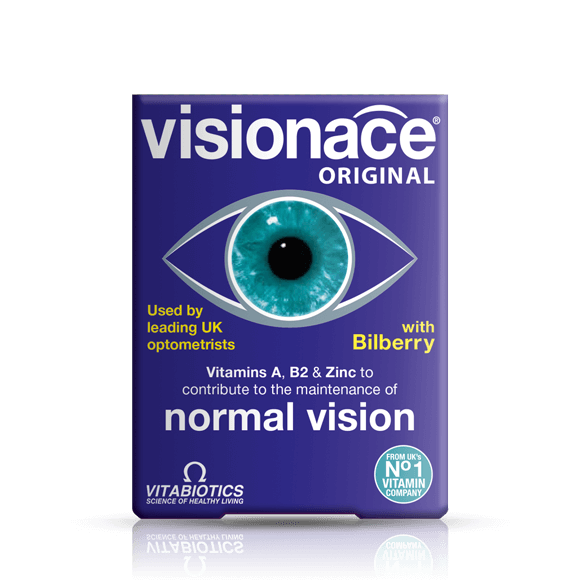Looking after your eyes isn’t just about going for a check-up every couple of years – there are plenty of simple ways to support your vision day-to-day. Whether you’re staring at screens all day, spending time outdoors or reading a lot, your everyday habits can all have an impact.
So, if you’ve ever wondered how to support your eye health or want to know what you can do to support your sight as you get older, you’re in the right place. From nutrition and supplements to lifestyle changes , here’s a guide to how to support eye health and vision – one small step at a time.
Diet for Eye Health
Eating a varied, balanced diet is a helpful way to support your wellbeing, and it can be particularly useful for your eyes. Certain nutrients contribute to the maintenance of normal vision such as vitamins A, B2 and zinc – and getting them from your meals is a great place to start.
Eggs
Egg yolks contain lutein, zeaxanthin and zinc. Zinc contributes to the maintenance of normal vision and contributes to normal metabolism of vitamin A.
Fatty Fish
Oily fish such as salmon, sardines and mackerel are rich in omega-3 fatty acids, including DHA. DHA contributes to the maintenance of normal vision (with a daily intake of 250mg).
Carrots
Carrots are a source of beta-carotene, which the body can convert into vitamin A. Vitamin A contributes to the maintenance of normal vision.
Leafy Greens
Spinach, kale and other leafy greens are a natural source of lutein and zeaxanthin. and also include vitamin C, which contributes to the protection of cells from oxidative stress.
Seeds
Chia, flax and hemp seeds offer plant-based omega-3 fats, including DHA. These can be a great choice if you’re not eating oily fish regularly or follow a vegetarian or vegan based diet
Lean Meat & Poultry
Lean meat such as beef or chicken is a source of zinc, which supports the maintenance of normal vision.
Lifestyle Habits That Support Eye Health
Eating well is one thing – but your daily habits matter too. If you're spending hours on your phone or forgetting to take breaks from your screen, you may be putting extra strain on your eyes without even realising.
The 20-20-20 Rule
Looking at a screen for too long can leave your eyes tired and dry. Try the 20-20-20 rule: every 20 minutes, look at something 20 feet away for 20 seconds.
Stay Hydrated & Get Enough Sleep
Water helps carry nutrients around the body, including to your eyes. Getting enough rest also gives your eyes time to recover, especially after a long day of looking at a screen or close-up work.
Eye Protection Is Essential
UV rays from the sun can affect your eyes over time. Wearing sunglasses with proper UV protection can help reduce exposure while you’re outdoors.








Comments (0)